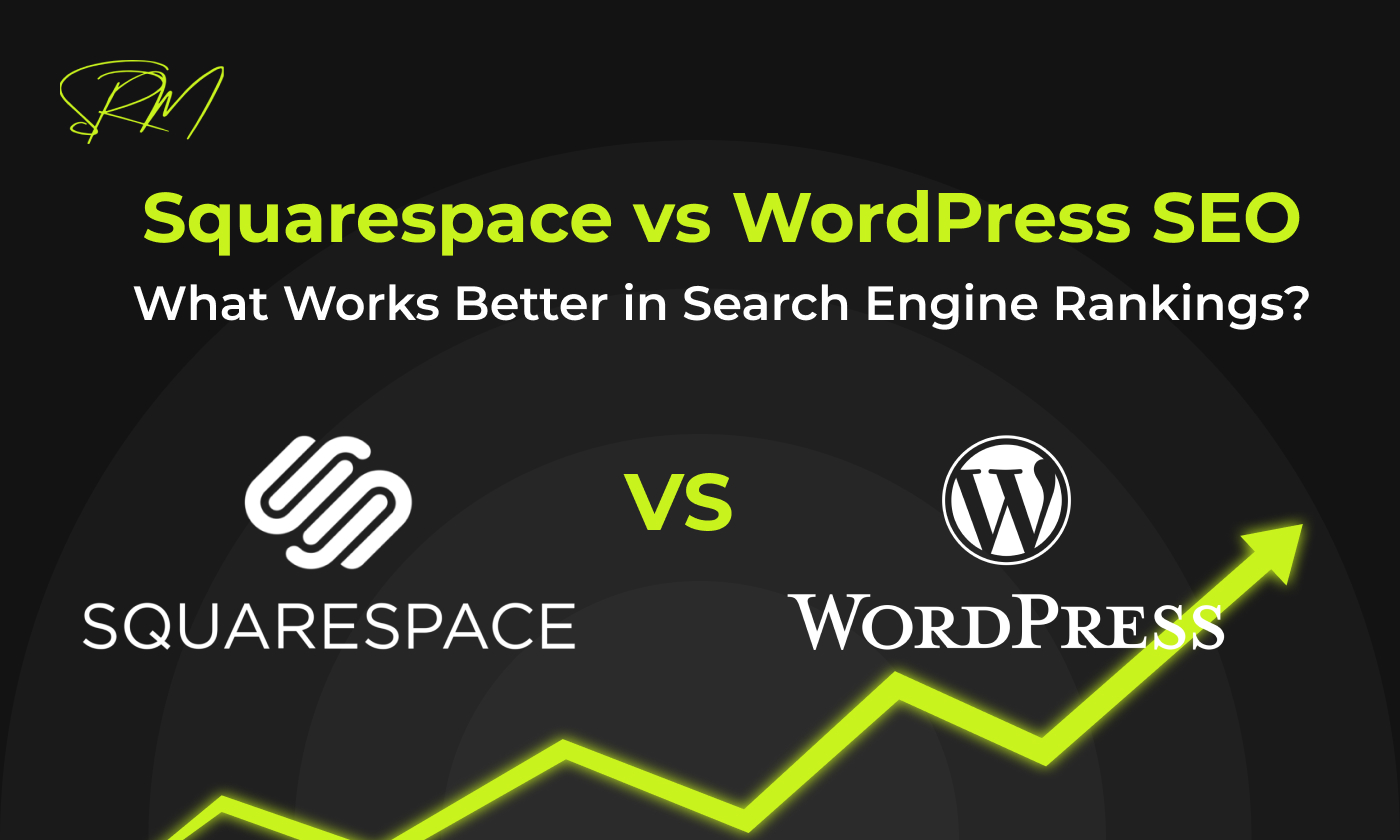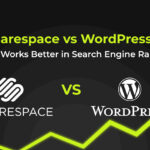
Hi there! I’m Shiwali Ratan Mishra, an SEO expert, and today I’m diving into a question I get asked all the time — “Shiwali, which platform is better for SEO: Squarespace or WordPress?”
Honestly, both platforms have their strengths, but when it comes to ranking on search engines like Google, the right choice can make a real difference. So, if you’re a business owner, blogger, or someone just starting out online, this guide will help you understand how each platform stacks up in terms of SEO.
Let’s break it down — from the basics to real-world results — and find out what works best for your goals.
First, What Is SEO Anyway?
Before we get into the comparison, let’s take a moment to understand what SEO really means.
As someone who’s been working in SEO for years, I like to explain it like this: SEO (Search Engine Optimization) is the art (and science) of helping your website appear higher in search results so people can actually find you online.
There are three core parts to SEO:
- On-Page SEO – This includes your content, headlines, internal links, keywords, and meta descriptions.
- Off-Page SEO – Mostly about backlinks and how other websites talk about you.
- Technical SEO – Covers site speed, mobile-friendliness, clean code, and other behind-the-scenes stuff.
When you choose a platform for your website, it’s super important that it helps — not hinders — your SEO efforts.
My Take on Squarespace
I’ve worked with a lot of clients who use Squarespace — and I get why. It’s beautiful, super user-friendly, and ideal if you want something quick and polished.
What I Like:
- Squarespace creates clean URLs and good page structure by default.
- All their templates are mobile responsive, which is great for Google rankings.
- You get SSL security and XML sitemaps without doing anything extra.
- You can edit meta titles and descriptions, even if you’re not a techie.
What I Don’t Like So Much:
- It’s hard to tweak technical SEO stuff — like robots.txt or redirect rules.
- There’s no plugin system, so you’re stuck with what Squarespace offers.
- Structured data (schema) has to be added manually using code blocks.
- The blogging features are quite basic compared to what I’m used to in WordPress.
So, if you’re a solopreneur or a creative professional looking to build a clean site with minimal hassle — Squarespace is a solid choice. But for SEO professionals like me, it does feel a bit limiting.
Why I (Usually) Recommend WordPress
Here’s the thing: WordPress.org is my go-to platform for SEO. Why? Because it gives you full control — and that’s music to any SEO expert’s ears!
Why I Love It:
- You can install powerful SEO plugins like Yoast SEO or Rank Math.
- It lets you control URLs, meta tags, redirects, and more — all in one place.
- Want to add schema markup, noindex tags, or create custom XML sitemaps? Easy.
- You can fully optimize site speed with caching, CDN, lazy loading, and plugins.
Challenges to Keep in Mind:
- It does require a bit of technical knowledge, especially early on.
- You’re responsible for updates, backups, and security.
- You need to pick a good hosting provider to get the best speed and uptime.
If you’re serious about SEO, content marketing, or growing your online presence long term — WordPress is where it’s at.
Comparing Squarespace vs WordPress – My Honest Breakdown
Here’s a feature-by-feature comparison in plain language:
1. SEO Plugins:
Squarespace doesn’t allow third-party SEO plugins. You only get the built-in stuff.
WordPress? You have access to thousands of plugins to boost and track your SEO.
2. Meta Tag Customization:
Squarespace gives you basic control.
WordPress gives you full control — and plugins even guide you on what to write.
3. URL Customization:
Squarespace limits how much you can customize your URLs.
With WordPress, you can create fully custom permalinks and redirect rules.
4. Schema Markup:
In Squarespace, adding structured data like reviews or FAQs is a manual task.
WordPress plugins handle schema easily — no coding needed.
5. Mobile Optimization:
Squarespace templates are all mobile-friendly by default.
WordPress has responsive themes too, but not all are optimized — you need to pick carefully or tweak them.
6. Speed Optimization:
Squarespace has fixed speed settings — not much you can tweak.
WordPress lets you use plugins like WP Rocket or W3 Total Cache to really improve speed.
7. Sitemap and Robots.txt Access:
Squarespace auto-generates these files, but you can’t edit them.
WordPress gives full access — ideal for technical SEO control.
8. Blogging Tools:
Squarespace has limited blog features.
WordPress is made for blogging — categories, tags, authors, archives, and more.
9. Technical SEO Access:
Squarespace doesn’t give access to backend files.
WordPress does — and if you know what you’re doing (or have someone like me to help), it’s a game changer.
When to Choose What? My Personalized Advice
Here’s how I guide my clients:
Choose Squarespace If:
- You want to launch quickly without dealing with plugins or hosting.
- You’re building a portfolio, resume site, or simple online store.
- You care more about design than advanced SEO.
Go With WordPress If:
- You’re serious about ranking high on Google.
- You want to blog regularly and build traffic through content.
- You plan to grow, scale, and need flexibility as you expand.
Honestly, WordPress takes more effort — but it pays off with better long-term SEO potential.
Real-Life SEO Cases I’ve Seen
Let me share two quick stories from my work:
One of my clients, a photographer, used Squarespace to create a stunning portfolio. We optimized her meta titles, added alt text, and wrote solid content — and she now ranks locally for “Wedding Photographer in Pune.”
Another client, a health blogger, runs a WordPress blog with over 300 posts. Using Yoast SEO, proper internal linking, and schema, she’s pulling in over 50,000 monthly organic visits — all through smart SEO.
Both platforms can rank, but WordPress gives you more room to scale and compete in bigger markets.
So, Which One Do I Recommend for SEO?
Here’s my final take, from one SEO expert to you:
- If you just want to build a beautiful site quickly, and SEO is not your top concern, go for Squarespace.
- If your goal is to build organic traffic, grow over time, and have full control over your site’s SEO — then WordPress is the clear winner.
At the end of the day, your platform is just a tool. The real success comes from consistent effort, quality content, smart optimization, and keeping up with SEO trends.
Final Thoughts
If you’re new to SEO or confused about which platform is right for you, don’t hesitate to ask for guidance. I’ve helped dozens of people make the switch — or stick — based on their real business goals.
And remember, whether you choose Squarespace or WordPress, the most important thing is to start building, stay consistent, and keep learning.
If you’d like help optimizing your website or want me to review your site’s SEO performance — I’m just a message away.



